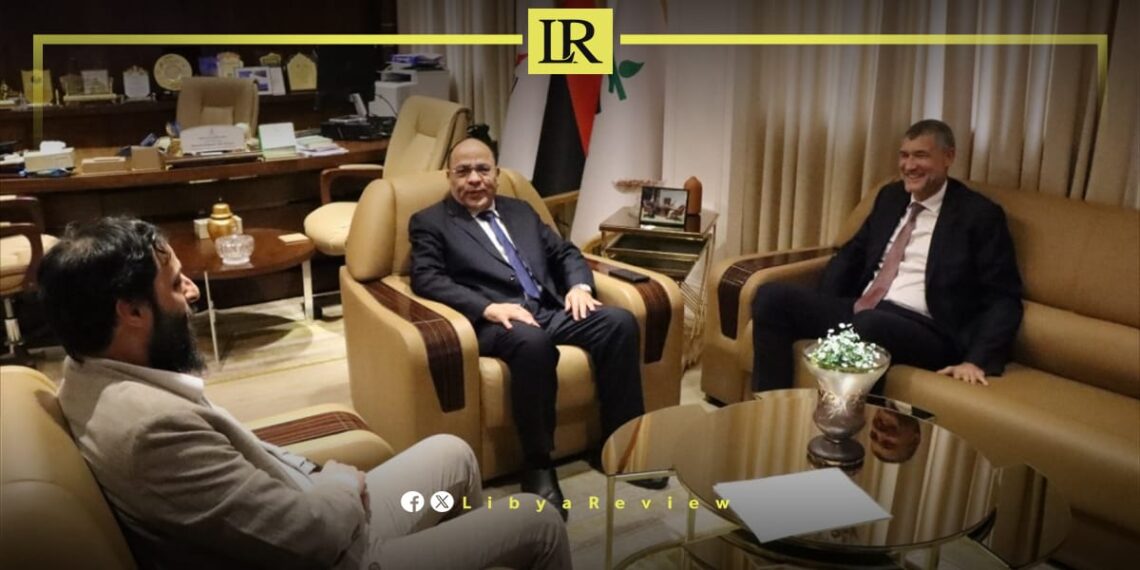The Arabian Gulf Oil Company (AGOCO) held a high-level meeting with oil-services provider NESR to discuss expanding technical and operational cooperation aimed at supporting Libya’s production goals. The talks took place at AGOCO’s Benghazi headquarters, chaired by the company’s Management Committee President, Mohamed Ben Shatwan.
According to AGOCO, the meeting focused on key areas where NESR could provide advanced expertise, particularly in digital transformation, directional drilling, and technologies designed to enhance output. Officials reviewed the ongoing projects currently executed by AGOCO and assessed how NESR’s capabilities could be integrated into the company’s long-term strategy to increase production efficiency.
The discussions also addressed several financial issues related to joint projects, with both sides emphasising the importance of transparent coordination to ensure smooth implementation. Ben Shatwan stressed that AGOCO remains committed to encouraging specialised companies to compete fairly and contribute to the development of Libya’s oil sector. He added that strengthening partnerships with reputable service firms aligns with the company’s aim of achieving operational excellence and long-term sustainability.
For its part, NESR provided an overview of its regional and international activities, including recent innovations developed through its research centres. The company highlighted its ability to transfer technical knowledge to the Libyan market, particularly in areas connected to drilling optimisation, reservoir performance, and well-enhancement solutions.
NESR representatives confirmed their readiness to support AGOCO’s efforts to improve technical performance and maximise production in line with Libya’s broader energy objectives. The meeting concluded with an agreement to continue technical workshops and project-specific evaluations to determine the most effective areas for collaboration.
AGOCO is one of Libya’s largest upstream operators, and the potential partnership with NESR reflects ongoing efforts to stabilise and expand production across the country’s oil fields, despite operational and infrastructural challenges in the sector.


